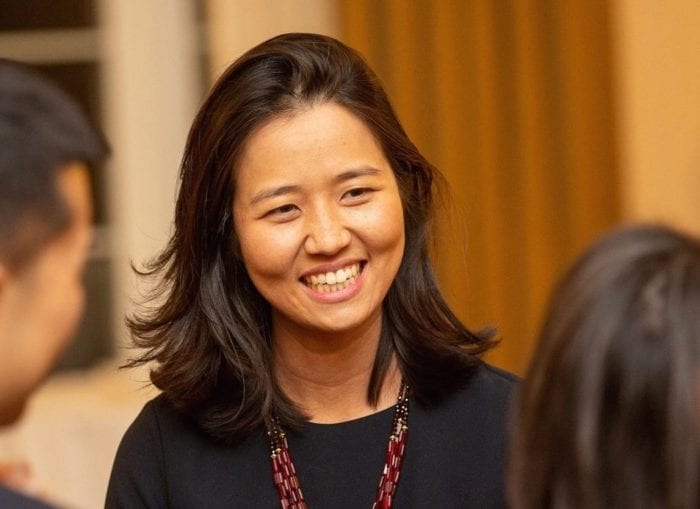
The plan aims to address structural inequities when it comes to Internet access.
City councilor and mayoral candidate Michelle Wu released a digital equity plan on February 2. As part of this proposal, Wu outlines a push towards creating a city-owned broadband network that would bring Internet access to each and every Boston resident. Wu calls for a bold vision that will bring digital equity for all, as the plan explains that nearly 15% of households in Boston do not have a subscription to Internet at home, while more than 32,000 households have no Internet at all.
“These digital gaps are concentrated in census tracts home to mostly Black, Latinx, and immigrant residents,” reads the press release. “From children unable to complete their homework, to parents cut off from their job search and grandparents facing isolation, the digital divide reinforces racial and economic inequities across our city, especially during this pandemic.”
The plan is broken down into five sections. Wu calls for the delivery of technology for education and economic opportunity, asking digital resources and learning hubs be created through schools, libraries, and community centers. She also demands that the City build just online interactions, implementing anti racist policies for digital access. The proposal also calls for improved access to telemedicine by phone or video. It describes the development of free, secure public WiFi at bus stops, along bus routes, and at MBTA subway stations. Wu requests that the City work with coalition partners, as well as with state and federal officials, to help address the gaps in accessibility.
Shira Laucharoen is a reporter based in Boston. She currently serves as the assistant director of the Boston Institute for Nonprofit Journalism. In the past she has written for Sampan newspaper, The Somerville Times, Scout Magazine, Boston Magazine, and WBUR.

